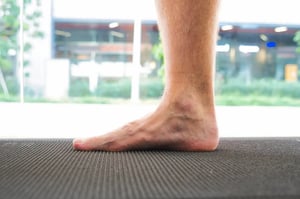
Posterior Tibial Tendon Dysfunction (PTTD) Therapy
Posterior Tibial Tendon Dysfunction (PTTD) Therapy
Take the first step towards pain-free living with our specialised treatments
What is Posterior Tibial Tendon Dysfunction (PTTD)?
Posterior Tibial Tendon Dysfunction (PTTD) is a condition that is characterised by the weakening or tearing of the posterior tibial tendon, which runs along the inside of the ankle and foot.
When this tendon becomes damaged or inflamed, it can lead to symptoms like pain, swelling, and a progressive flattening of the foot. PTTD is often referred to as adult-acquired flatfoot because it typically develops in adults and leads to the gradual loss of the arch.
Understanding the nature of PTTD, including its symptoms, causes, diagnosis, and treatment options, is essential for effective management. At UFIT Podiatry, a specialised approach is adopted to provide relief and promote recovery for individuals suffering from PTTD.




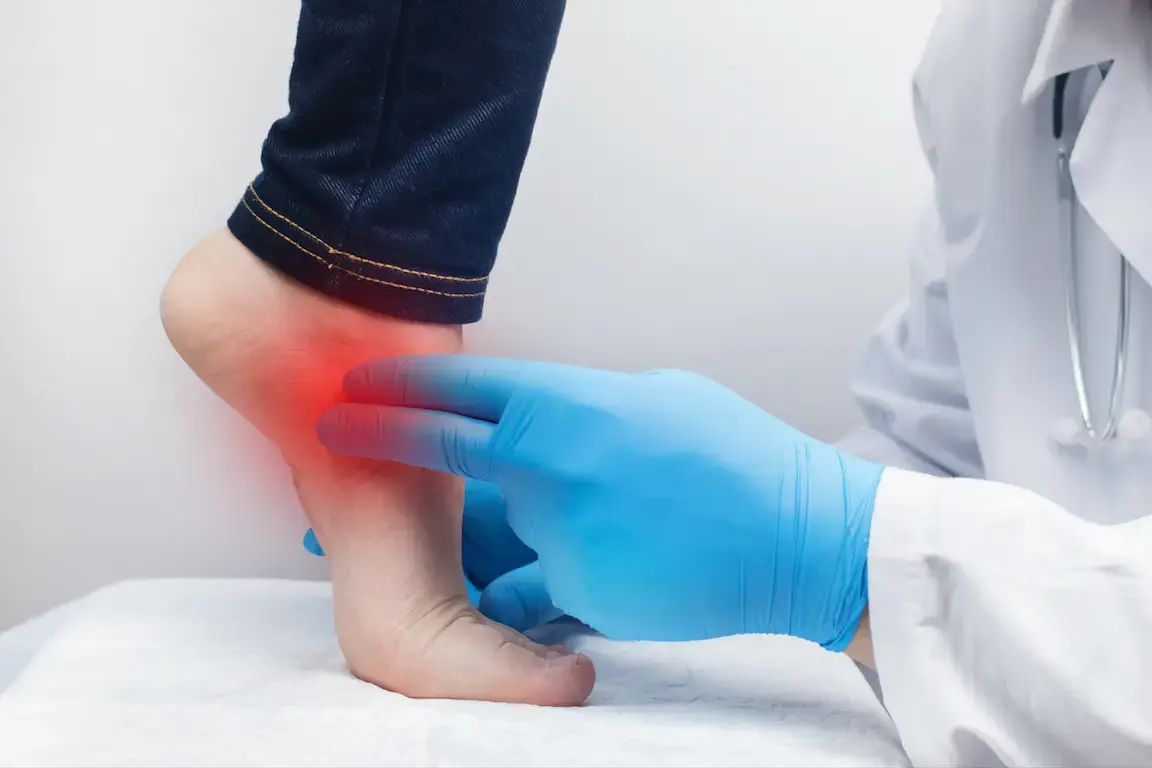
Causes of Posterior Tibial Tendon Dysfunction (PTTD)
What is Posterior Tibial Tendon Dysfunction (PTTD)?
Posterior Tibial Tendon Dysfunction (PTTD) is a condition that affects the posterior tibial tendon, which plays a crucial role in supporting the arch of the foot and maintaining proper foot mechanics. When this tendon becomes damaged or inflamed, it can lead to pain, swelling, and a progressive flattening of the foot. Understanding the nature of PTTD, including its symptoms, causes, diagnosis, and treatment options, is essential for effective management. At UFIT Podiatry, a specialized approach is adopted to provide relief and promote recovery for individuals suffering from PTTD.
PTTD is a progressive condition characterized by the weakening or tearing of the posterior tibial tendon, which runs along the inside of the ankle and foot. This tendon is responsible for supporting the arch and stabilizing the foot during movement. When the tendon becomes dysfunctional, it can lead to a collapse of the arch, resulting in flatfoot deformity. PTTD is often referred to as adult-acquired flatfoot because it typically develops in adults and leads to the gradual loss of the arch.
Symptoms of Posterior Tibial Tendon Dysfunction (PTTD)
The symptoms of PTTD can vary depending on the stage of the condition but generally include:Pain and Swelling
Pain along the inside of the ankle and foot, which may be accompanied by swelling. The pain often worsens with activity.
Flatfoot Deformity
A visible flattening of the arch, leading to an outward rolling of the ankle and foot.
Weakened Foot Function
Difficulty in standing on tiptoe or performing activities that involve pushing off with the affected foot.
Limited Mobility
Reduced range of motion in the foot and ankle, making walking or other activities painful and challenging.
Tenderness in the
Inner Ankle or Arch
Tenderness along the course of the posterior tibial tendon, from the inside of the ankle to the middle of the arch.
Knee & Back Pain
Feeling pain in any part of your and/or have back pain after a long day of activity.
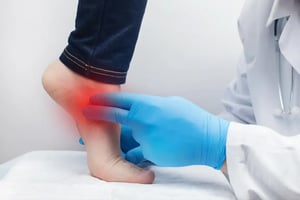
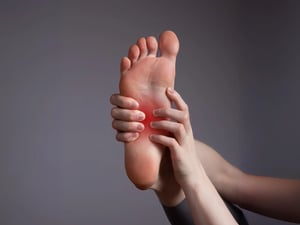
Causes of Posterior Tibial Tendon Dysfunction (PTTD)
Stages of Posterior Tibial Tendon Dysfunction (PTTD)
Understanding its stages helps in early diagnosis and appropriate intervention at podiatry clinics.
Stage 1: Early Inflammation & Pain
In this initial stage, the posterior tibial tendon is inflamed and painful, typically along the inside of the ankle and foot. There may be mild swelling, but the foot arch remains largely intact and flexible. Walking may be painful.
Stage 2: Tendon Damage & Arch Collapse
As the condition progresses, the posterior tibial tendon begins to lengthen and degenerate, losing its ability to support the arch effectively. Patients often experience increased pain, weakness, and difficulty with activities like walking or running. At this stage, you may not be able to stand on your toes on one leg.
Stage 3: Rigid Flatfoot Deformity
At this advanced stage, the foot deformity from Posterior Tibial Tendon Dysfunction becomes more significant and rigid. Arthritis may begin to develop in the joints of the hindfoot due to the chronic misalignment and increased stress. Pain symptoms are often more severe and constant, and walking can become significantly impaired.
Stage 4: Ankle Deformity & Arthritis
The most severe stage involves the progressive flatfoot deformity extending to affect the ankle joint. The ankle may start to tilt outwards (valgus deformity), leading to instability and further pain. Significant arthritis develops not only in the foot but also in the ankle joint itself, severely limiting motion and function.
Our Approach to Posterior Tibial Tendon Dysfunction (PTTD) Physical Therapy
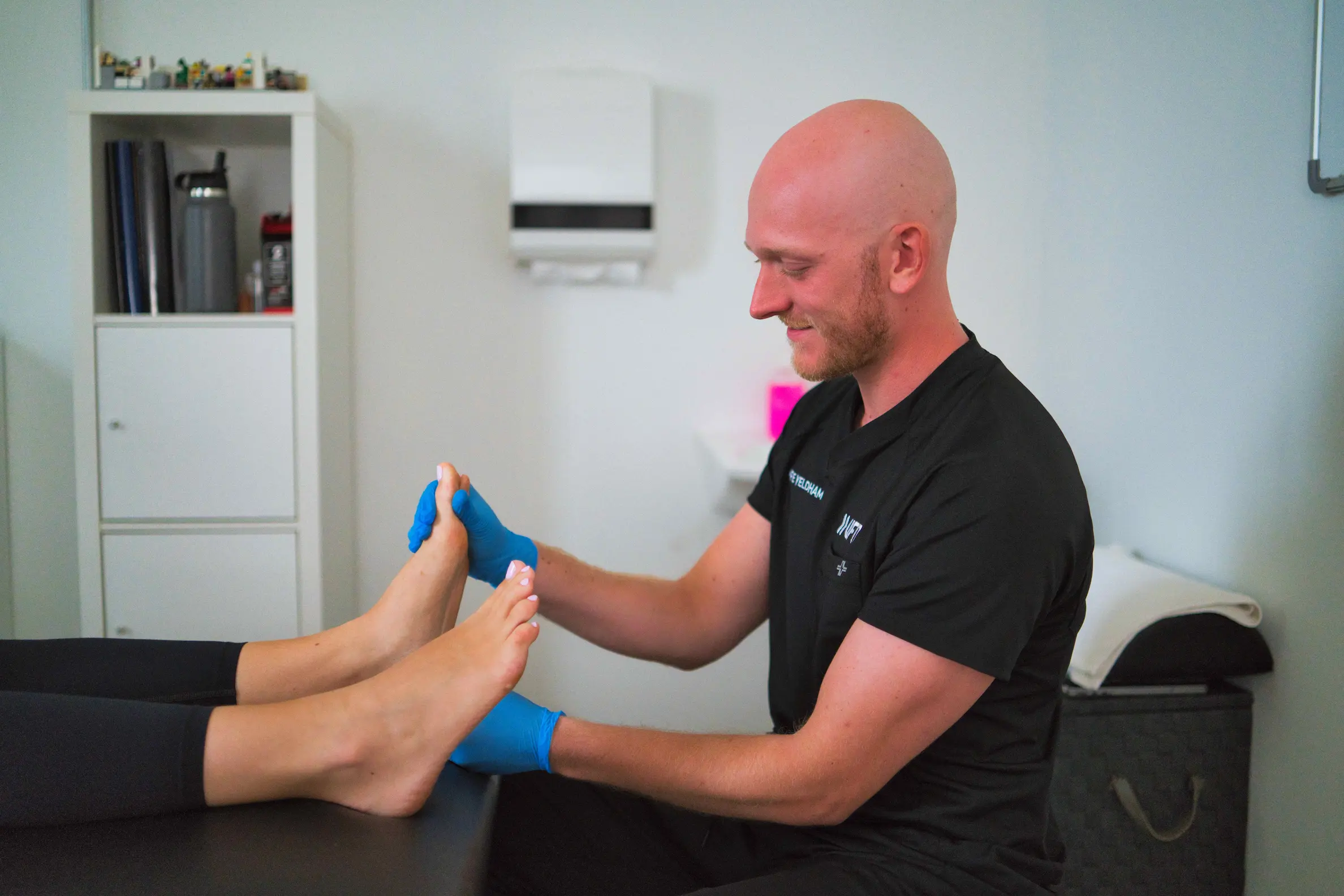
Step 1. Thorough Assessment
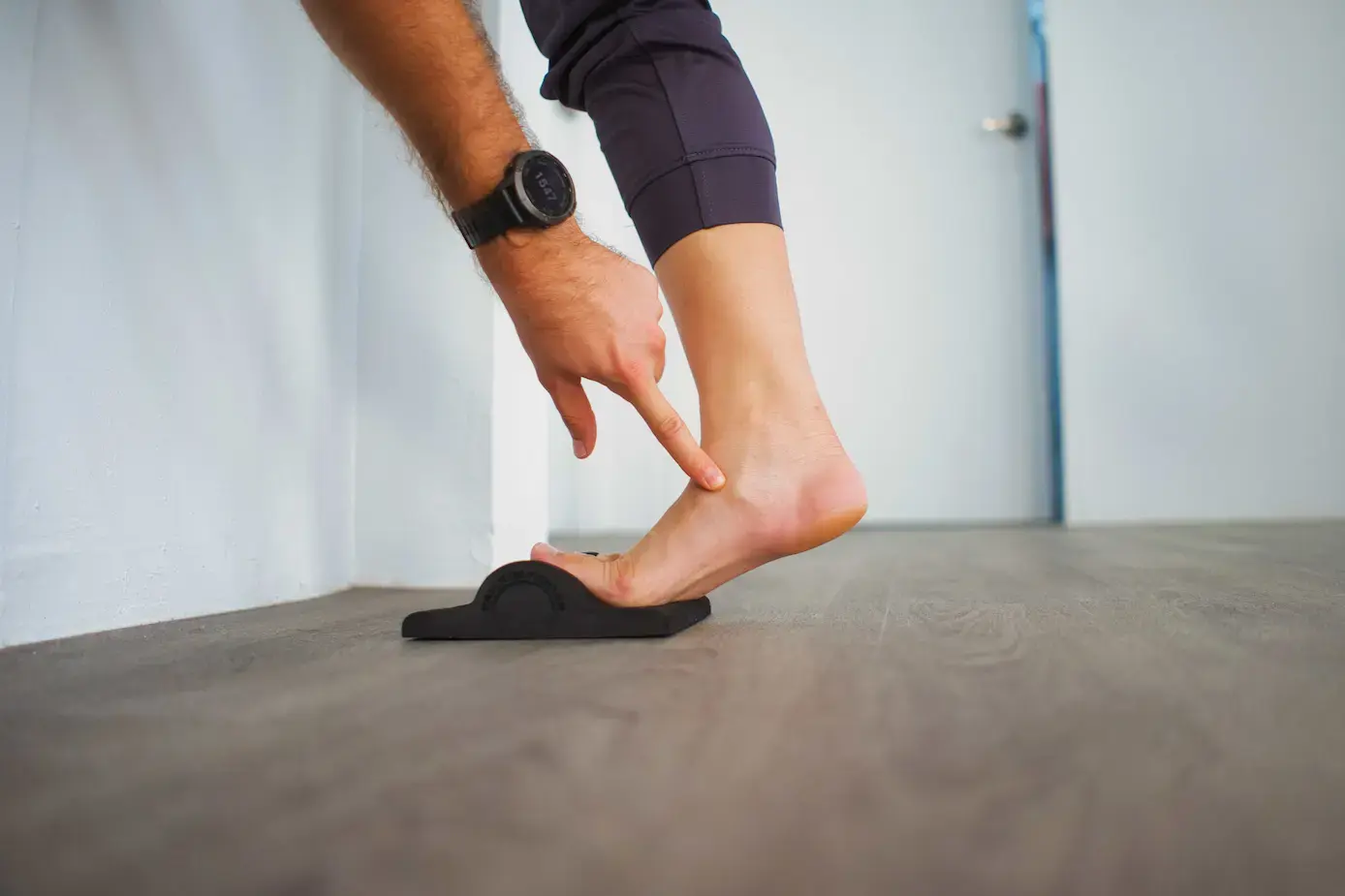
Step 2. Custom Management Plans
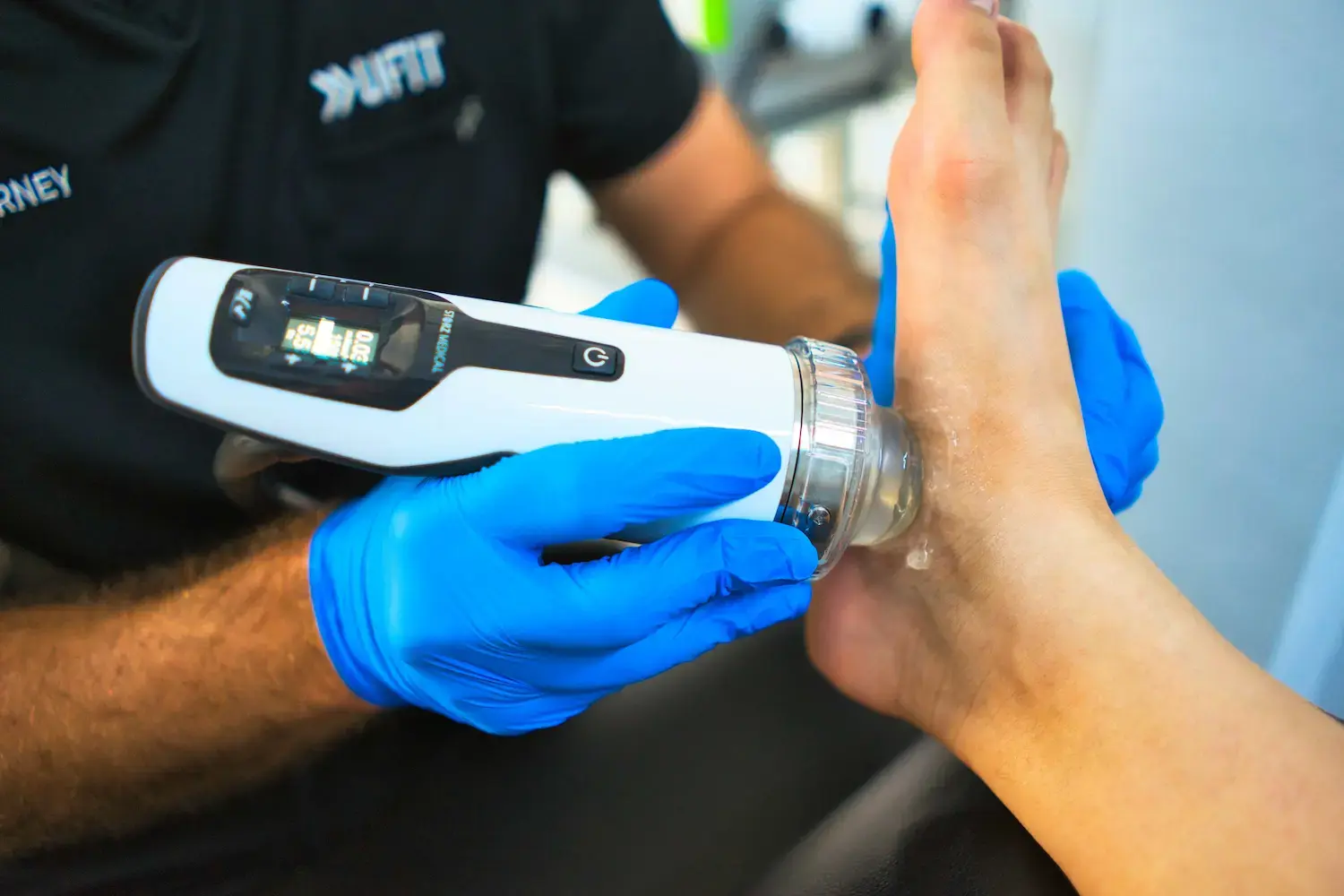
Step 3. Advanced Therapies
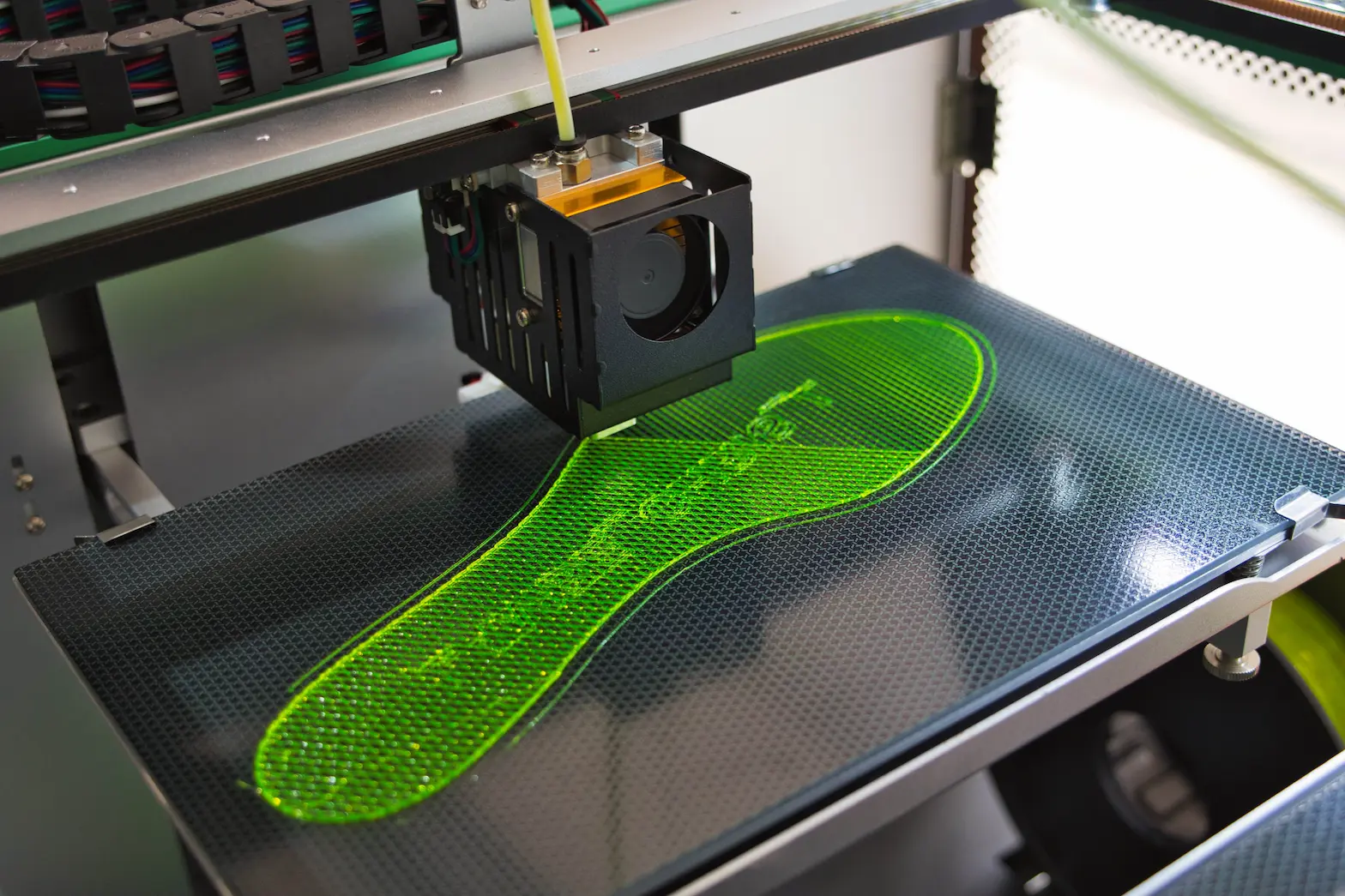
Step 4. Custom Made Orthotics
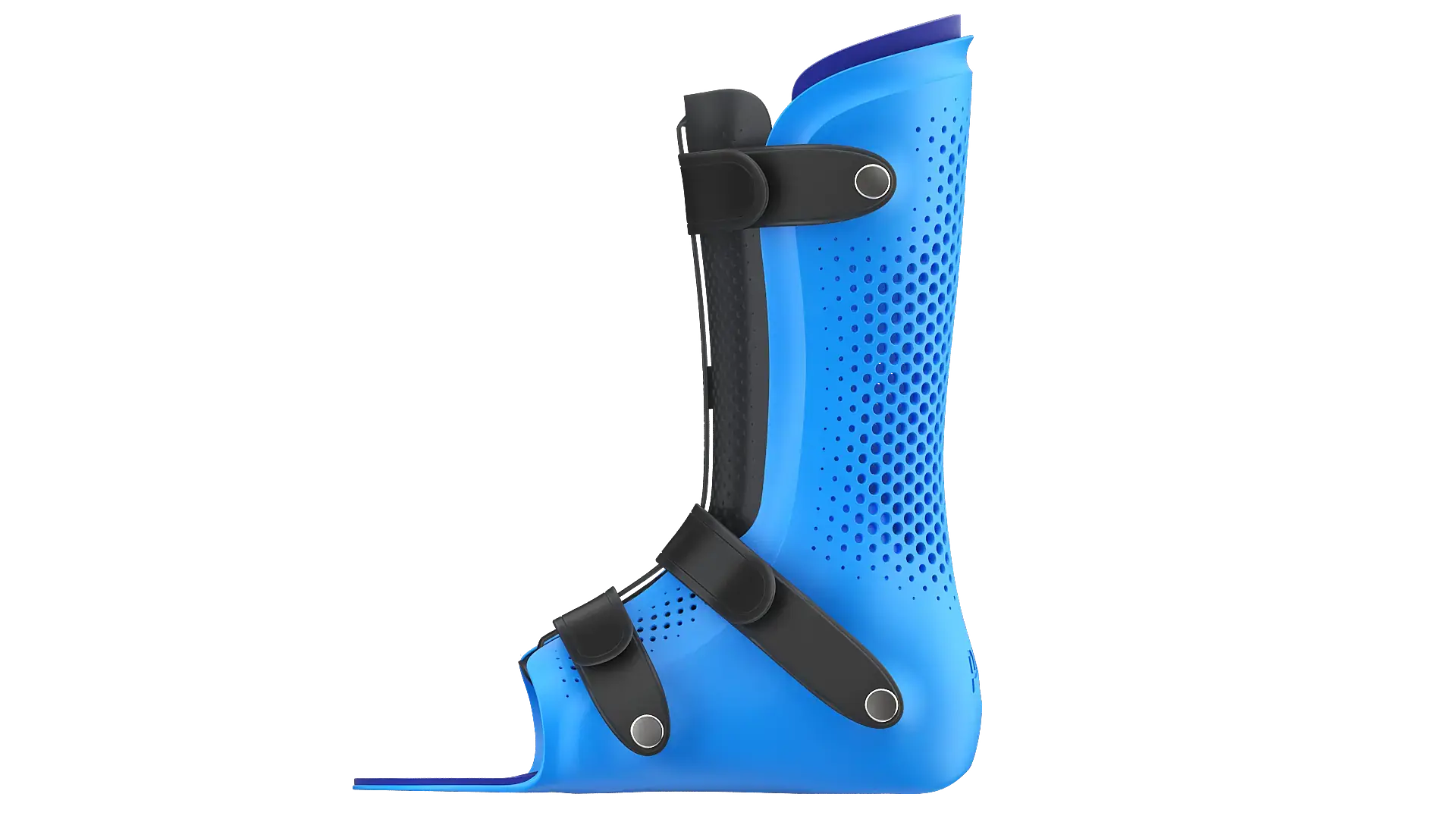
Step 5. Supportive Ankle Foot Orthotics
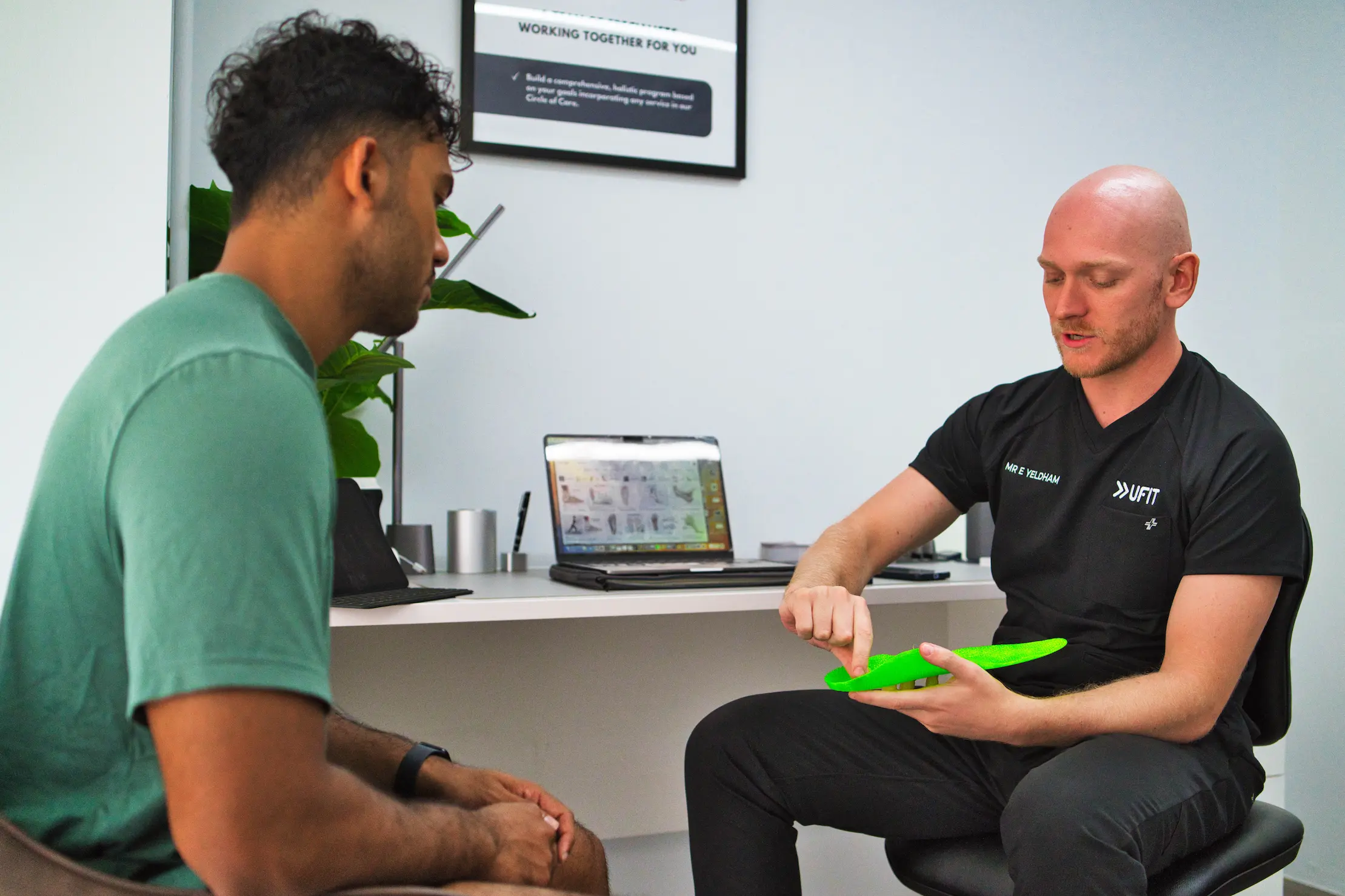
Step 6. Follow-Up Care
Our Approach to Posterior Tibial Tendon Dysfunction (PTTD) Physical Therapy
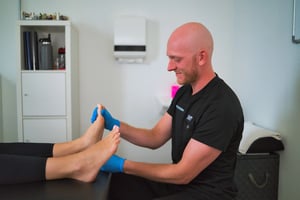
A detailed initial assessment is conducted to understand the patient’s condition, lifestyle & any contributing factors. This involves a physical examination, gait analysis & a review of medical history.
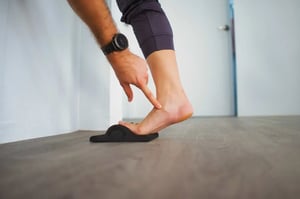
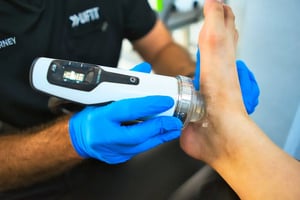
UFIT Podiatry offers advanced therapeutic options for PTTD such as Radial Shockwave and Focal Shockwave Therapy.
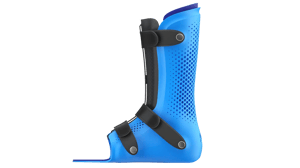
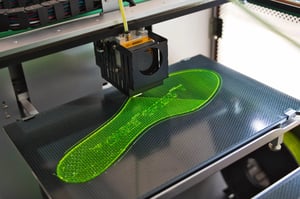
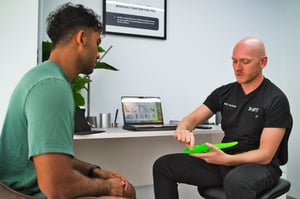
PTTD, though often painful and debilitating, can be effectively managed with a combination of appropriate treatments and preventive measures. By understanding the causes, symptoms, and available treatment options, individuals can take proactive steps towards relief and improved tendon health. At UFIT Podiatry, a patient-centered approach ensures that those suffering from PTTD receive the best possible care, tailored to their unique needs. Through comprehensive assessments, advanced therapies, and personalized treatment plans, UFIT Podiatry helps patients overcome the challenges of PTTD and achieve long-lasting comfort and mobility.
Our Approach to Posterior Tibial Tendon Dysfunction (PTTD) Physical Therapy






PTTD, though often painful and debilitating, can be effectively managed with a combination of appropriate treatments and preventive measures. By understanding the causes, symptoms, and available treatment options, individuals can take proactive steps towards relief and improved tendon health. At UFIT Podiatry, a patient-centered approach ensures that those suffering from PTTD receive the best possible care, tailored to their unique needs. Through comprehensive assessments, advanced therapies, and personalized treatment plans, UFIT Podiatry helps patients overcome the challenges of PTTD and achieve long-lasting comfort and mobility.
ALL INDIVIDUALS
ALL INDIVIDUALS
We offer personalized, evidence-based lower limb care for athletes, active individuals, and parents seeking specialized treatment for their children.
We go beyond addressing your injury or pain. Through our Circle of Care, you can access our team of experts with a vast range of specialised experience and knowledge.
What to expect on your first visit
We use cutting-edge diagnostic tools to get real-time insights into your soft tissue, joints and structures to provide a fast and accurate diagnosis.
Post-assessment, you will receive clear and comprehensive reports detailing our findings. This will allow you to make informed decisions on your treatment plan.
Together with you, we formulate a comprehensive and personalised treatment plan that suit your goals and preferences.

Book online & get $20 off your first consultation
- Personalised, evidence-based care
- Premium, central clinic in the CBD
- Experienced podiatary team
*Terms & Conditions:
- Valid for first time patients who have made prepayment at least 24 hours before the appointment
- Non-cancellable and non-transferable
- Applicable only for initial consultation & can't be used in conjuction with any other offers or promos
Why Choose UFIT’s Podiatry Services?
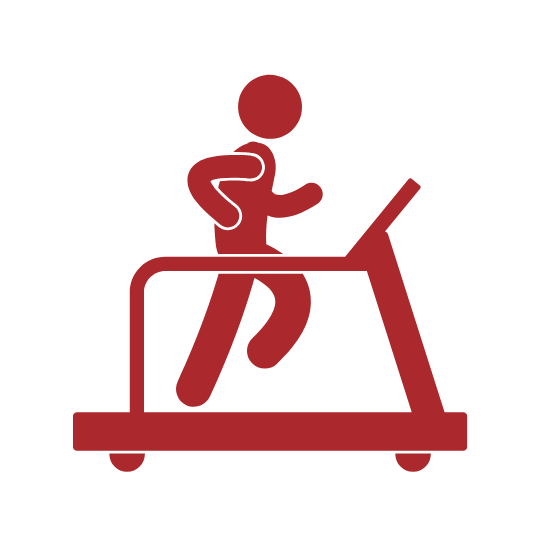
Advanced Technology
As a leading podiatry clinic in Singapore, we stand out by offering advanced gait analysis and in-house 3D-printed insoles, all accompanied by a comprehensive report to provide unparalleled insights into your lower limb biomechanics.

Elite Care for Every Individual
Our podiatry services offer personalised, evidence-based care for a wide range of individuals, including athletes, adults and children. So if you’re experiencing lower limb pain, our expert team can provide comprehensive support to get you back to doing the things you love.

Team of Experts with Optimal Results
We offer more than just solutions for your injury or pain. Through UFIT's integrated Circle of Care, you gain access to our team of expert podiatrists and other healthcare professionals, bringing together a vast range of experience and knowledge to achieve optimal outcomes for your foot and lower limb health.
Hear from our Clients
⭐⭐⭐⭐⭐
“I recently had an appointment with podiatrist Lewis Nurney at UFIT, and it was a wonderful experience. I’ve been dealing with a long-standing issue, but with Lewis’s expertise, kindness, and patience in listening to my concerns, I’ve finally been able to solve the problem and feel so much better.
The clinic is modern with high-tech equipment, and Lewis explained everything clearly, making me feel confident in the treatment plan. Now I’m feeling ready and prepared for the 10K Standard Chartered Marathon! If you’re looking for expert podiatry care, I highly recommend Lewis and the team at UFIT!”
⭐⭐⭐⭐⭐
“Came back to UFIT today after a year since my last consultation with Lewis Nurney. I was very relieved to know that my Achilles issues can be fixed with Lewis’s great advice. He would show me how to perform rehab exercises that will be able to help me throughout my recovery. I highly recommend UFIT podiatry to anyone in need of advice or help.”
⭐⭐⭐⭐⭐
“I had the pleasure of visiting Dr. Lewis through a recommendation and it turned out to be an excellent one, particularly after experiencing so many already. The thoroughness of his examination and help at each step of the process is beyond impressive. He took the time to listen to all my concerns and thoroughly explained my diagnosis and treatment options.
He made sure that I was well-informed and comfortable with the decisions being made without any pushing. I would highly recommend him for anyone in need of a skilled and caring podiatrist.”
Meet Our Podiatry Team

Lewis Nurney
Lewis is a highly experienced podiatrist with over 5 years of practice in Singapore, bringing his expertise to UFIT's comprehensive Circle of Care. As Head of Podiatry at UFIT Club Street, he specialises in sports podiatry, innovative orthotics for adults and children (including 3D-printed custom insoles, Paediatric AFOs and SMOs for pediatric flat feet), and minimally invasive procedures.
A first-class honours graduate from the University of Huddersfield (UK), Lewis holds dual certifications in Extracorporeal Shockwave Therapy (ESWT), Diagnostic Ultrasound and Running Gait analysis. Previously with East Coast Podiatry, he now provides patient-centred care at UFIT, specialising in non-surgical management of conditions like Foot Pain, Plantar Fasciitis and Achilles Tendinopathy in both children and adults, ultimately focused on alleviating discomfort and restoring optimal foot function.

Elliot Yeldham
Elliott is a dedicated podiatrist with over 7 years of healthcare experience, gained in both the UK's National Health Service (NHS) and private practice. He holds an Honours degree in Podiatry from Cardiff Metropolitan University (Wales), and brings a wealth of expertise to Singapore.
Specialising in Musculoskeletal (MSK) podiatry, Elliott's interests include sport podiatry and the management of gait abnormalities in both adults and children. He is also recognised for his skill and patient-focused approach in minimally invasive procedures for ingrown toenails and wart removal. Committed to a patient-centred and multidisciplinary model, Elliott actively stays informed of the latest healthcare advancements through clinical research and international conferences.
Book Our Specialist For Your PTTD Consultation Now
Visit Our Podiatry Clinic
21 Club St, #01-01
Singapore 069410
+65 6225 5059
podiatry@ufit.com.sg
View on Google Maps



Frequently Asked Questions about Posterior Tibial Tendon Dysfunction (PTTD)
Individuals over the age of 40, especially women, are at higher risk. Other risk factors include obesity, pre-existing flat foot problems, participation in high-impact sports like running or basketball, and certain inflammatory conditions such as rheumatoid arthritis.
Yes, absolutely. Overuse and repetitive stress from activities such as running, jumping, or sports involving sudden changes in direction are common contributors to PTTD. These activities can cause micro-tears and inflammation in the tendon, leading to its progressive weakening.
Physical therapy for PTTD typically focuses on strengthening the posterior tibial muscle and other supporting muscles, improving flexibility, and correcting gait abnormalities. This often includes specific stretching exercises, strengthening exercises for the foot and ankle, and balance training.
In many cases, particularly in the earlier stages, PTTD can be effectively managed and improved with non-surgical approaches. These conservative treatments include custom orthotics in Singapore, braces, physical therapy, activity modification, and anti-inflammatory medication. Surgery is generally considered for more advanced stages or when conservative methods have not provided sufficient relief.
Podiatry Blog
Check out the podiatry articles on our blog, written by our very own experts!

.png?width=301&height=187&name=Website%20Navigation%20Images%20(3).png)

-1.jpg?width=1984&height=1196&name=UFIT%20Club%20Street%20Front%20(4)-1.jpg)







